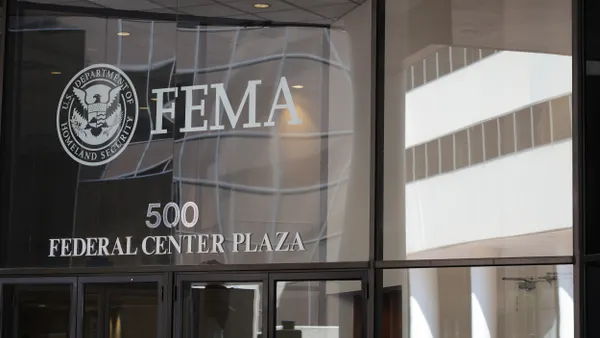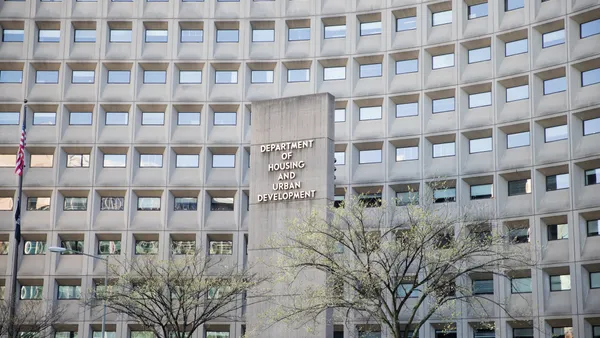Dive Brief:
- Boston has released a request for information (RFI) seeking ideas for a "potential large-scale program" to reduce the estimated 54,700 tons of residential food and yard waste disposed of each year. This could include plans to increase the use of composting, in-sink garbage disposals or other technologies.
- In parallel, Boston released a request for proposals (RFP) for a curbside organics collection "partnership" contract that could run up to three years. This would be a city-endorsed subscription service for residents.
- The city also released a curbside textile recycling collection RFP. The service would be free, with a revenue share proposal for the city, and also run on a contract term of up to three years. Boston estimates residents dispose of 13,300 tons of soft textiles per year.
Dive Insight:
Per a new "zero waste" plan, the city is striving to increase its current overall recycling rate from 25% to 80% by 2035 — and beyond by 2050.
Initial estimates put the cost of implementing this full plan at $58 million per year, with a potential trade-off of $40 million in savings through waste reduction. Newly negotiated disposal contracts with Covanta and Wheelabrator indicate costs will only continue to rise otherwise.
Organics, which account for 29% of Boston's residential waste, are a key focus of the plan. While Massachusetts has an organics disposal ban for any generator of more than one ton per week, Boston's own efforts have been minimal. The city collects 11,000 tons of yard waste per year for composting at a municipally-owned site, but its "Project Oscar" drop-off bins for food waste are yielding only 40 tons per year. Expanding that activity could also provide a welcome boost of demand for local processing infrastructure.
While curbside organics collection has been brought up often over the years — most recently at a June 2018 city council hearing — Boston officials maintain it's too expensive. A review of the curbside organics RFP indicates the city is open to potentially subsidizing a subscription service, but will make no commitments at this time.
Instead, Boston appears to be holding out hope that local collection companies will offer a bulk discount — including to any of their existing customers in the city.
Neighboring Cambridge now offers citywide curbside organics collection, although its use of Waste Management's CORe pre-processing facility — which co-digests the material with sewage — has drawn protest from environmental groups. In recognition of that criticism, Boston's "zero waste" plan specified a preference to "prioritize processing of compostable materials separately from sewage sludge." The curbside RFP appears to favor composting, but the RFI keeps its options open and doesn't rule out wastewater treatment facilities.
In particular, the RFI asks for ways Boston "could encourage or incentivize its citizens to install, adopt, or increase usage of garbage disposals as a form of organic food waste removal." Boston has experimented with in-sink pilots in the past, and other cities such as Philadelphia and Los Angeles remain interested in expanding this option.
While the logistics and potential politics around a large-scale organics plan may be complicated, Boston's plans for a curbside textile collection program may be an easier lift. Dozens of municipalities around Massachusetts already offer the service via contracts with Simple Recycling.
Responses to both RFPs are due by Aug. 22. RFI responses are due by Aug. 29.











